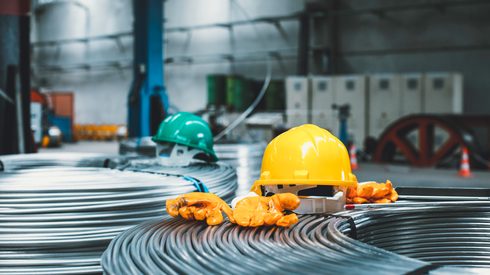Fastmarkets’ daily price assessment for containerized steel scrap, heavy melting scrap (HMS) 1&2 (80:20), United States material import, cfr main port Taiwan was $430-432 per tonne on Friday, unchanged from a day earlier and down by $8-10 per tonne from $440 per tonne a week earlier.
Buyers were able to purchase containerized material from the US West Coast at increasingly lower prices.
There were transactions concluded at $437 per tonne cfr and $435 per tonne cfr by Tuesday, while transactions were concluded at $432 per tonne cfr and $430 per tonne cfr by Wednesday and Thursday.
Market sources indicated that spot prices remained at $430-432 per tonne cfr Taiwan on Friday.
Sentiment was also depressed by news of a major scrap importer in Turkey purchasing bulk cargoes from the US East Coast at lower prices this week.
Sellers had maintained offers for US West Coast-origin material at $440 per tonne cfr Taiwan at the start of the week, before steadily dropping offers to $435 per tonne cfr Taiwan by mid-week.
There were far fewer offers by Thursday, however, even as sellers started to withdraw amid rebounds in China’s steel prices.
“Sellers on the US West Coast do not want to drop offers much further because of the wide gap with bulk prices, which are still at $500 per tonne cfr Asia and above,” a Taiwanese trader told Fastmarkets on Friday.
A major Taiwanese mill kept its domestic HMS purchase price stable but dropped its purchase price for scrap by NT$200 ($7.20) per tonne. It also kept its selling price for rebar unchanged.
Bulk cargoes of Japanese H1&H2 scrap (50:50) were offered at $480-482 per tonne cfr Taiwan during the week. Bids were at $465-470 per tonne cfr Taiwan.
“There is limited interest for such materials due to their high premiums over containerized materials,” a Taiwanese trader told Fastmarkets on Thursday.




